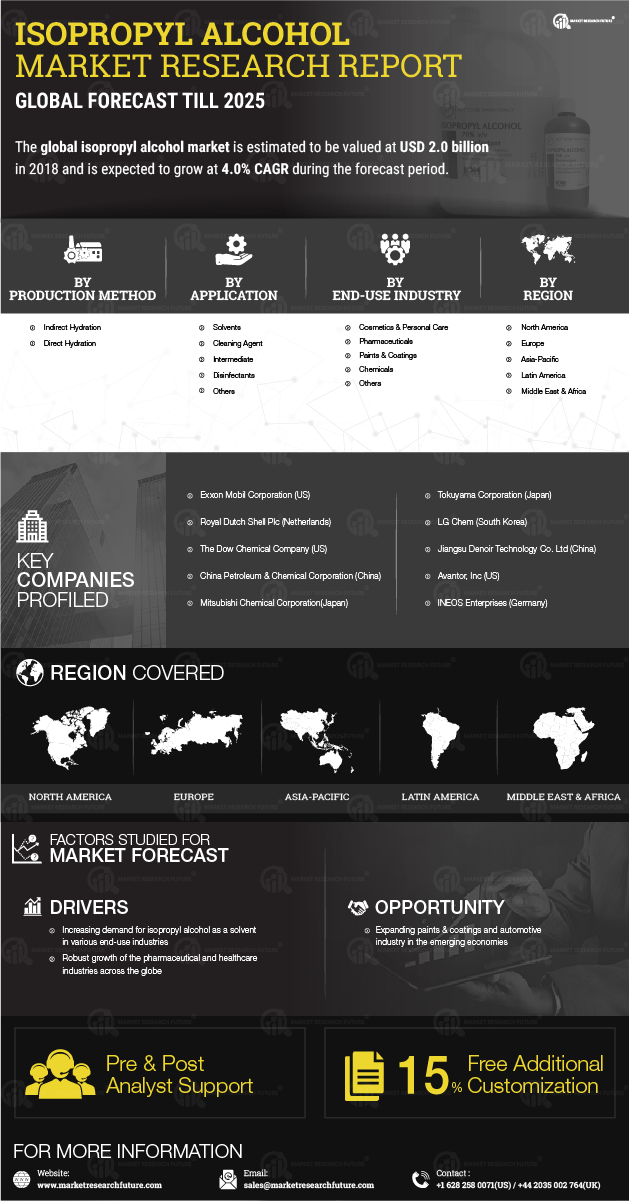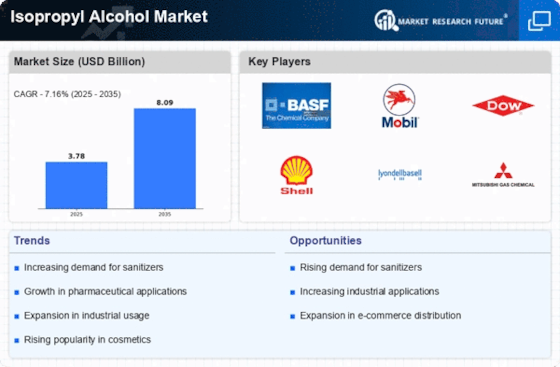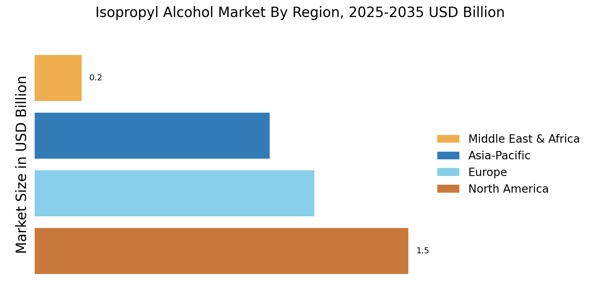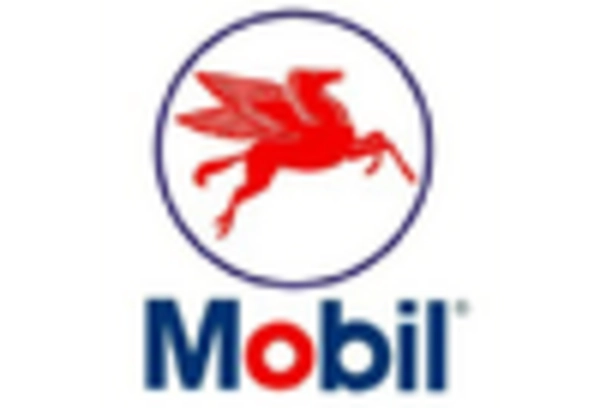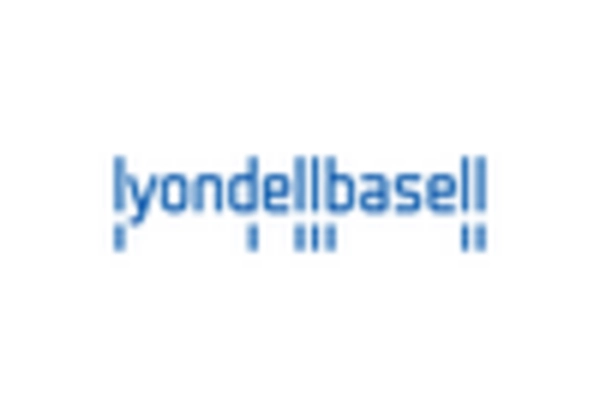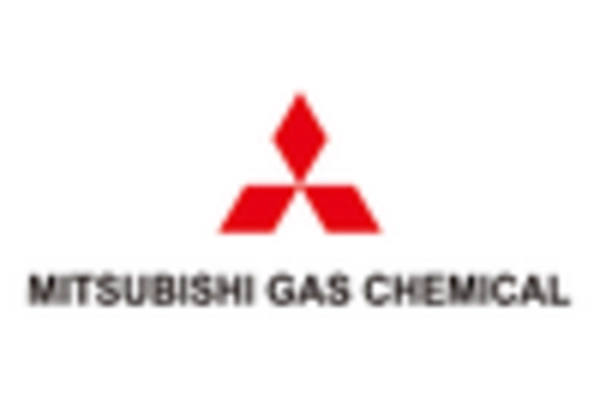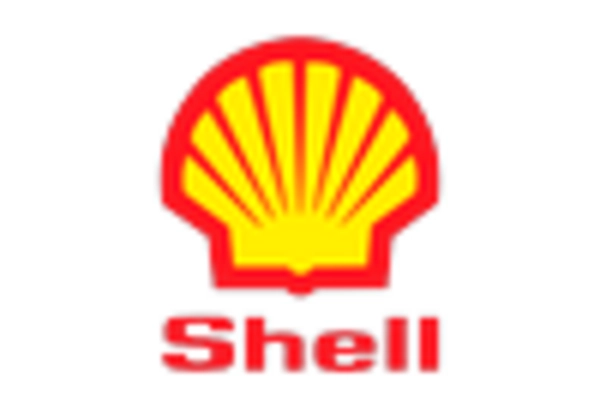Expansion in Industrial Applications
The Isopropyl Alcohol Market is significantly influenced by its expanding applications across various industrial sectors. Industries such as automotive, electronics, and pharmaceuticals utilize isopropyl alcohol for cleaning, degreasing, and as a solvent in manufacturing processes. The increasing complexity of manufacturing processes and the need for high-purity solvents are driving this trend. For instance, in the electronics sector, isopropyl alcohol is essential for cleaning circuit boards and components, ensuring optimal performance. Market data indicates that the industrial segment is expected to witness robust growth, as companies seek efficient and effective cleaning solutions. This expansion in industrial applications is likely to bolster the demand for isopropyl alcohol, further solidifying its position within the Isopropyl Alcohol Market.
Increasing Use in Personal Care Products
The Isopropyl Alcohol Market is experiencing a notable rise in demand due to its incorporation in personal care products. This compound is widely utilized in cosmetics, skincare, and hair care formulations, serving as a solvent and antiseptic. The growing consumer awareness regarding hygiene and personal grooming is propelling manufacturers to include isopropyl alcohol in their products. According to recent data, the personal care segment is projected to account for a substantial share of the market, reflecting a trend towards premiumization and quality in consumer goods. As consumers increasingly prioritize health and wellness, the demand for isopropyl alcohol in this sector is likely to continue its upward trajectory, thereby enhancing the overall growth of the Isopropyl Alcohol Market.
Technological Advancements in Production
The Isopropyl Alcohol Market is witnessing a transformation due to technological advancements in production methods. Innovations in manufacturing processes, such as the development of more efficient catalytic processes, are enhancing the yield and purity of isopropyl alcohol. These advancements not only reduce production costs but also minimize environmental impact, aligning with sustainability goals. Furthermore, the introduction of bio-based isopropyl alcohol is gaining traction, appealing to environmentally conscious consumers and industries. Market data indicates that these technological improvements are likely to drive competitive pricing and increase accessibility, thereby expanding the market reach of isopropyl alcohol. As production technologies continue to evolve, the Isopropyl Alcohol Market is poised for significant growth.
Rising Demand in the Pharmaceutical Sector
The Isopropyl Alcohol Market is significantly bolstered by the increasing demand from the pharmaceutical sector. Isopropyl alcohol is widely used as a disinfectant and antiseptic in hospitals and clinics, contributing to infection control and patient safety. The ongoing advancements in healthcare and the rising prevalence of chronic diseases are driving the need for effective sanitization solutions. Recent statistics suggest that the pharmaceutical segment is projected to grow at a considerable rate, reflecting the heightened focus on hygiene and safety in medical environments. As healthcare providers continue to prioritize cleanliness, the demand for isopropyl alcohol is expected to rise, thereby enhancing its role in the Isopropyl Alcohol Market.
Surge in Cleaning and Disinfecting Products
The Isopropyl Alcohol Market is experiencing a surge in demand for cleaning and disinfecting products. The heightened awareness of cleanliness and hygiene in both residential and commercial spaces is driving consumers to seek effective cleaning solutions. Isopropyl alcohol is a key ingredient in many disinfectants, known for its efficacy against a wide range of pathogens. Recent market analysis suggests that the cleaning products segment is expected to grow substantially, as consumers increasingly prioritize health and safety in their environments. This trend is further supported by the rise of e-commerce platforms, which facilitate the easy availability of isopropyl alcohol-based cleaning products. As the demand for cleaning solutions continues to escalate, the Isopropyl Alcohol Market is likely to benefit from this growing consumer preference.
